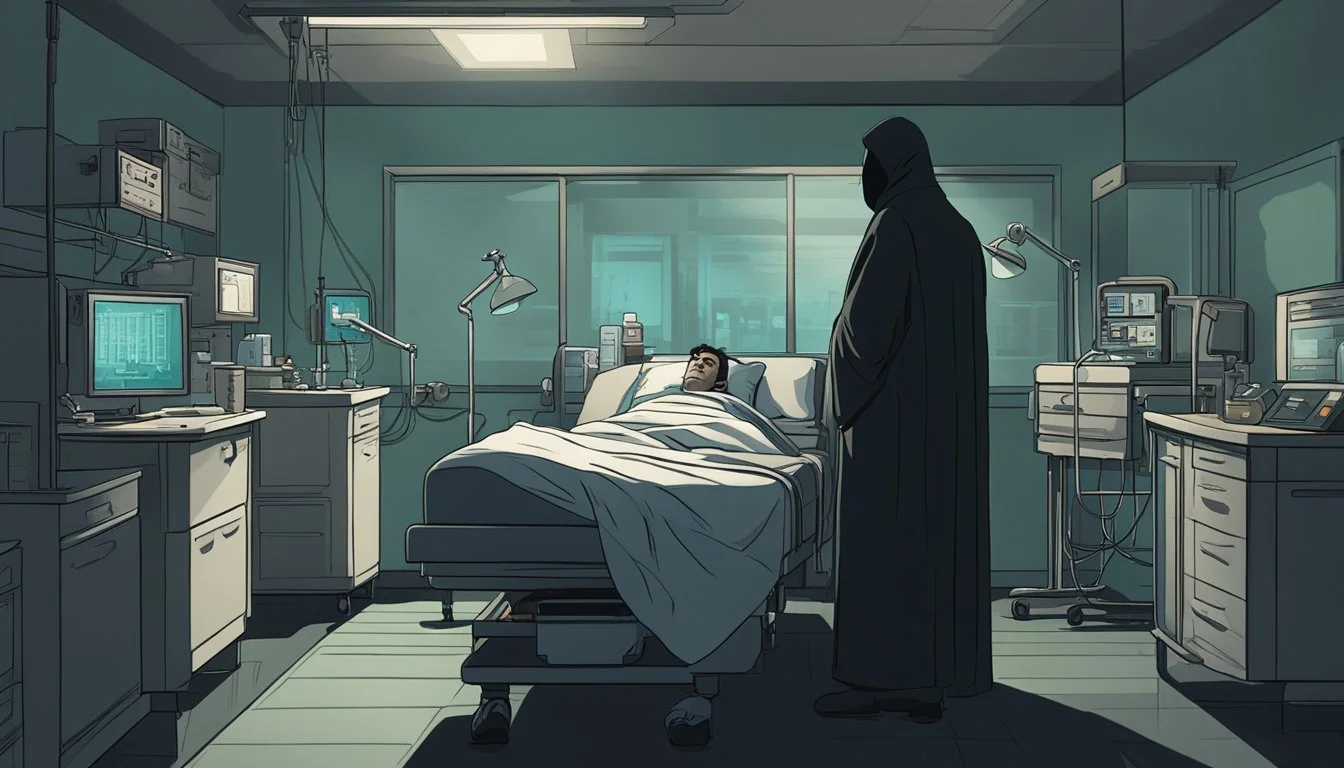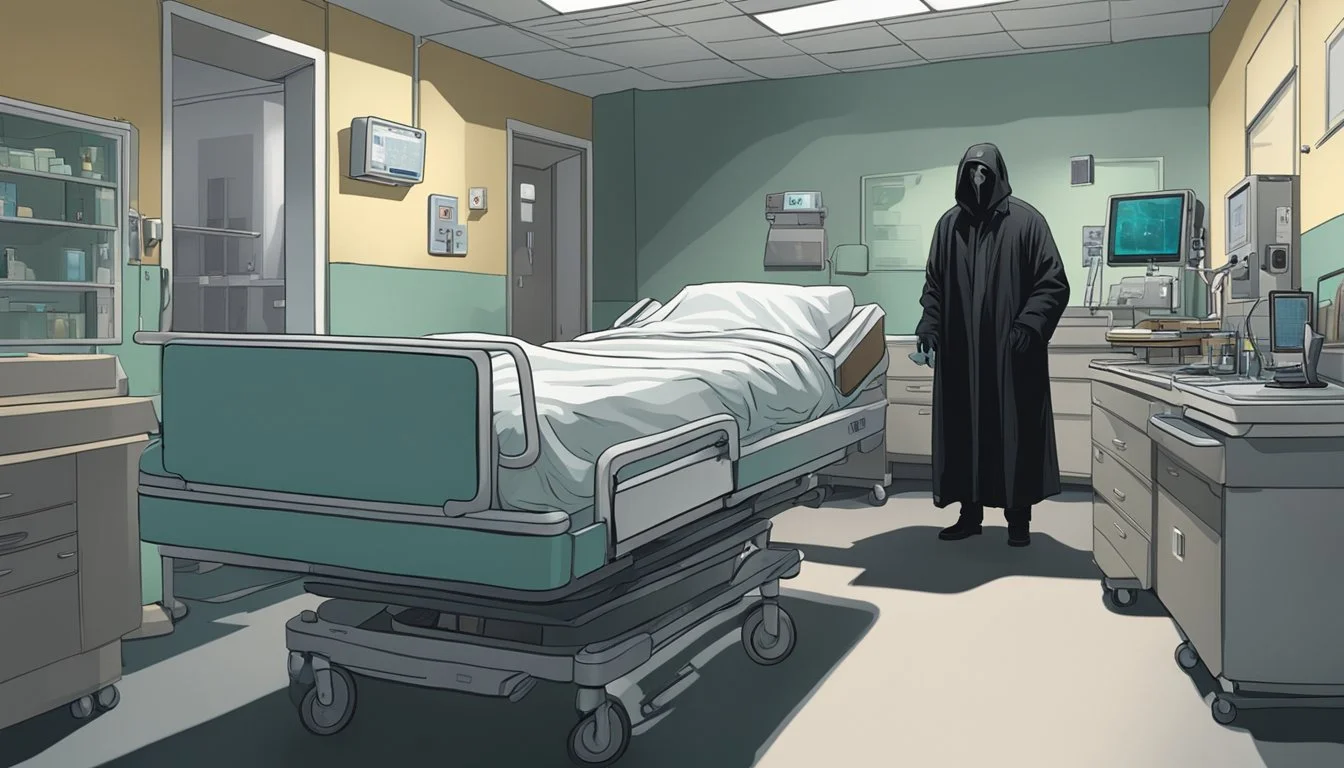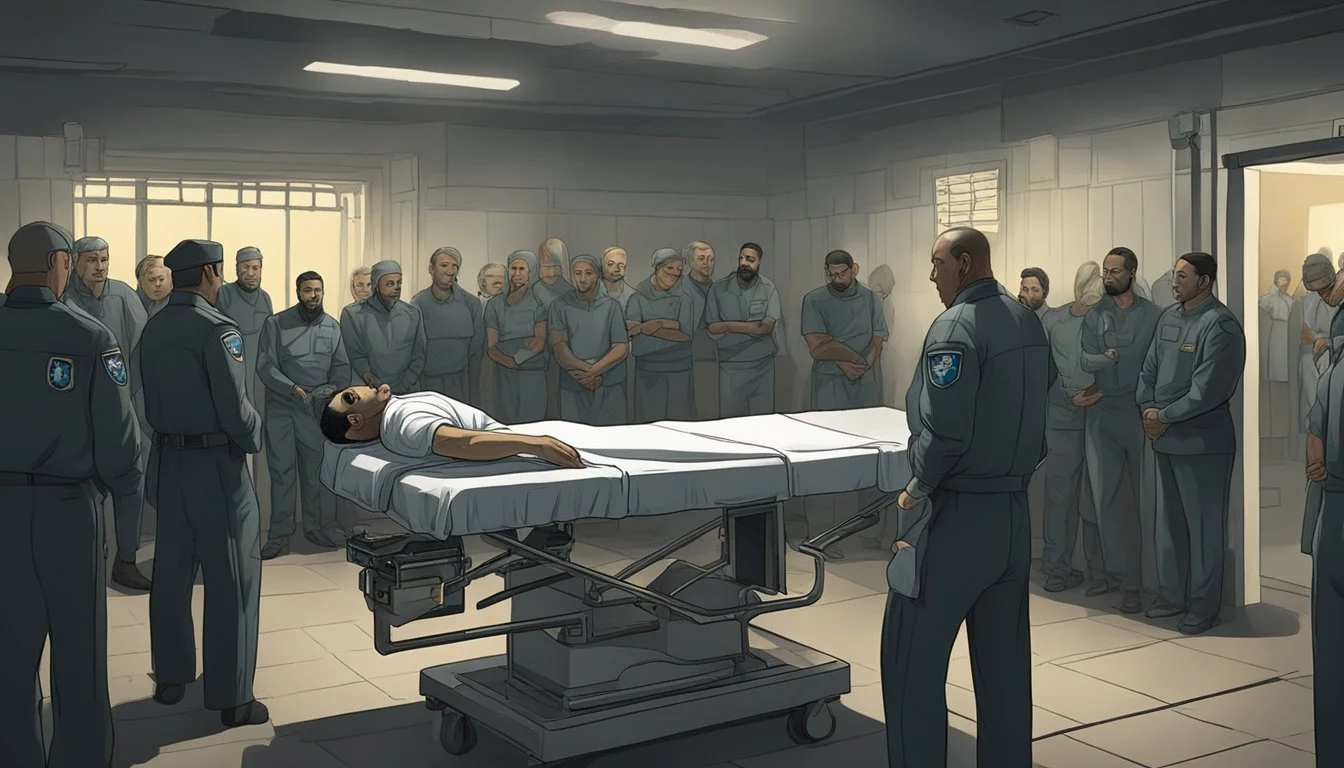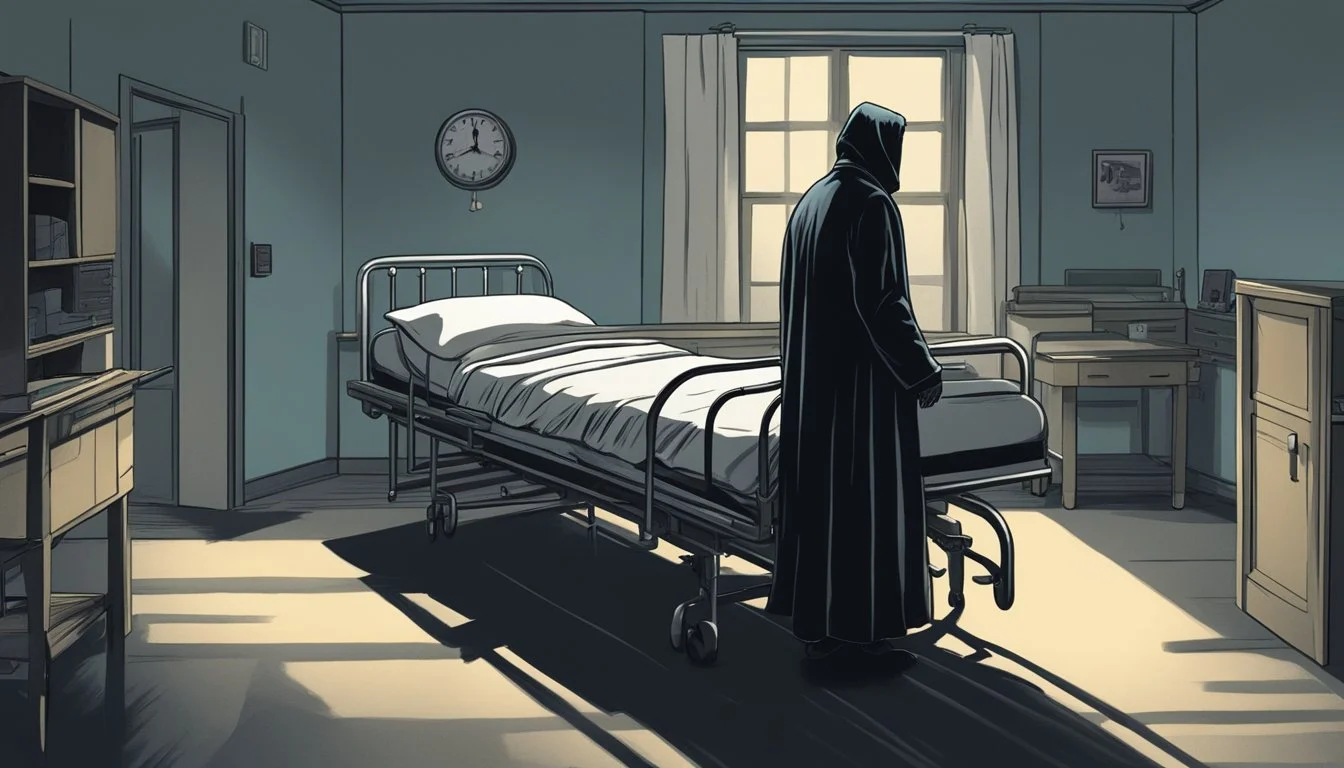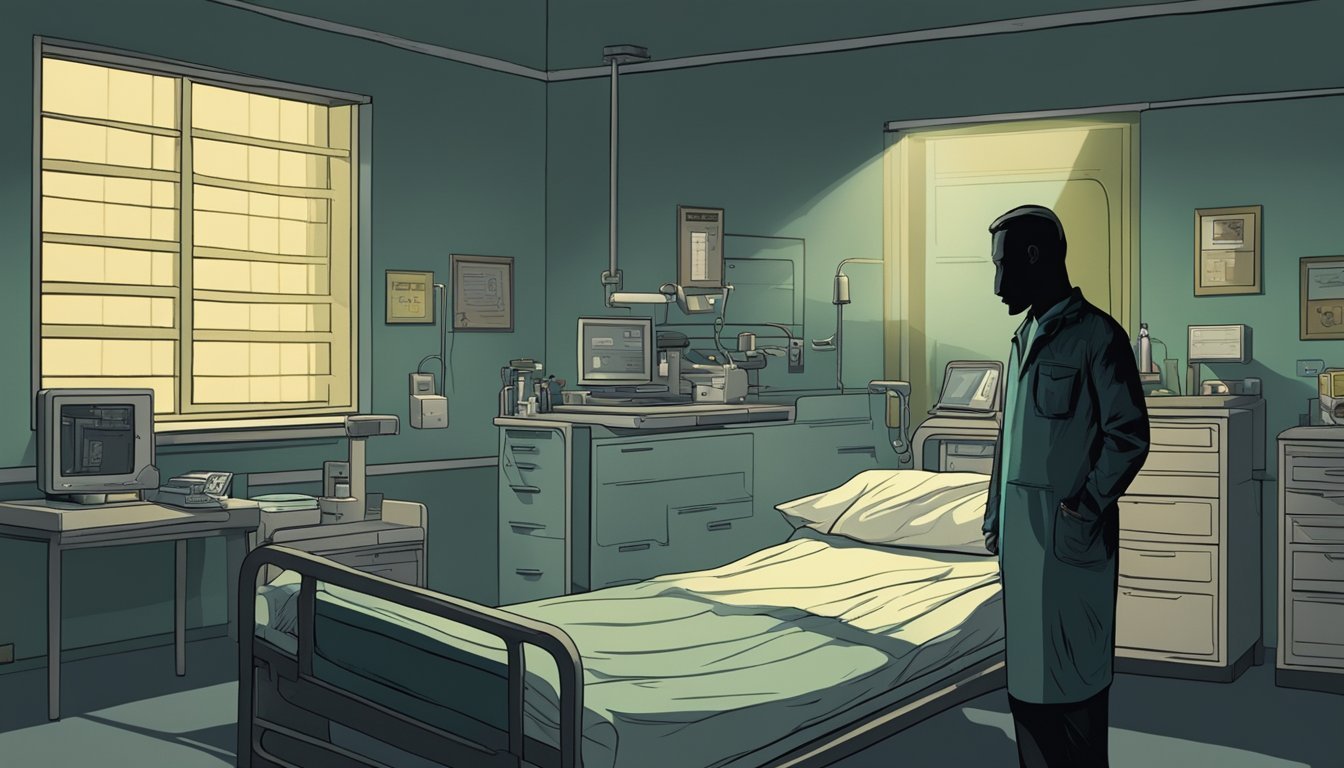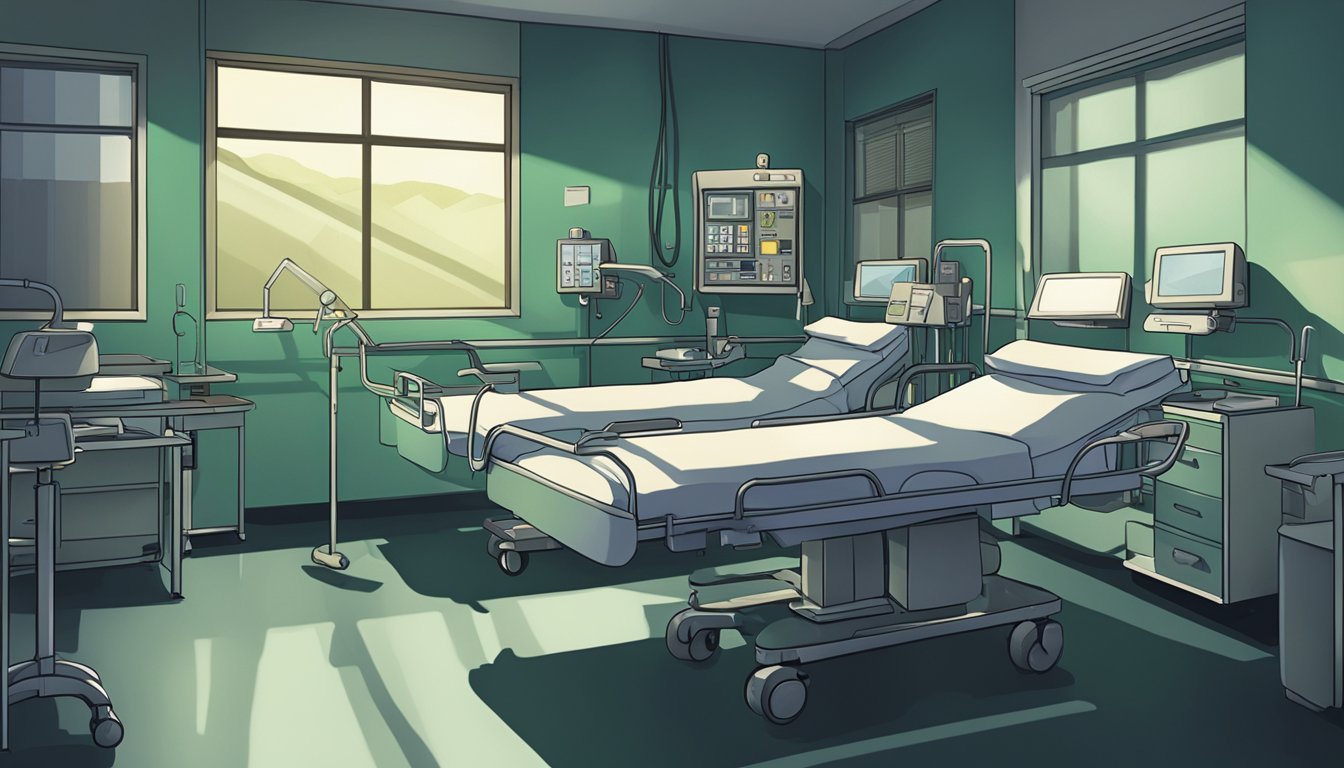Charles Cullen: 7 Chilling Films About the Angel of Death
Exploring True Crime on Screen
Charles Cullen, a former nurse dubbed the "Angel of Death," shocked the world with his chilling crimes. His murderous spree, which lasted from 1988 to 2003, involved injecting lethal doses of medications into unsuspecting patients under his care. Cullen's actions have since inspired several films that explore the dark depths of his psyche and the devastating impact of his crimes.
The story of Charles Cullen has captivated audiences and filmmakers alike, prompting a range of cinematic interpretations. These films delve into the complexities of Cullen's case, examining how he managed to evade detection for so long and the eventual process of his capture. From documentaries to dramatized accounts, each film offers a unique perspective on this disturbing chapter in medical history.
1) The Good Nurse (2022)
"The Good Nurse" is a gripping thriller based on the true story of serial killer Charles Cullen. Directed by Tobias Lindholm, the film stars Jessica Chastain and Eddie Redmayne in lead roles.
The movie follows Amy Loughren, a nurse who becomes suspicious of her colleague Charles Cullen. As patients begin dying under mysterious circumstances, Amy works to uncover the truth behind these deaths.
Eddie Redmayne delivers a chilling performance as Charles Cullen, portraying the seemingly ordinary nurse who secretly murdered patients. Jessica Chastain plays Amy Loughren, the courageous nurse who helps bring Cullen to justice.
The film explores the failures of the healthcare system that allowed Cullen to continue working despite suspicions. It highlights the challenges faced by those who sought to expose his crimes.
"The Good Nurse" offers a tense and unsettling look at one of America's most prolific serial killers. It serves as a stark reminder of the potential for evil to hide in plain sight.
2) To Catch a Killer (2023)
"To Catch a Killer" is a crime thriller directed by Damián Szifron. The film stars Shailene Woodley as Eleanor, a talented but troubled police officer in Baltimore.
The story unfolds on New Year's Eve when a sniper attack leaves 29 people dead. Eleanor is recruited by FBI chief investigator Geoffrey Lammark, played by Ben Mendelsohn, to help profile and track down the killer.
The movie explores the psychological aspects of criminal profiling. It delves into Eleanor's personal struggles as she works to uncover the identity of the disturbed individual terrorizing the city.
Jovan Adepo and Ralph Ineson round out the cast of this tense thriller. The film marks Szifron's English-language directorial debut.
"To Catch a Killer" attempts to bring a fresh perspective to the serial killer genre. It focuses on the investigative process and the toll it takes on those involved in hunting dangerous criminals.
https://www.imdb.com/title/tt14957414/
3) Lethal Injection (2021)
Lethal Injection is a made-for-television film that explores the chilling crimes of Charles Cullen. The movie focuses on Cullen's time as a nurse and his method of killing patients through lethal medication doses.
The film portrays Cullen's calculated approach to murder, highlighting how he exploited his position of trust in various hospitals. It delves into the systemic failures that allowed him to continue working despite suspicions about his conduct.
Lethal Injection also examines the investigation that ultimately led to Cullen's arrest. The movie depicts the efforts of detectives and fellow nurses who worked to uncover the truth about the serial killer in their midst.
While fictionalized in parts, the film strives to present a realistic portrayal of Cullen's crimes and their impact on victims' families. It serves as a stark reminder of the potential dangers lurking in healthcare settings.
4) Death's Hand (2020)
Death's Hand is a lesser-known independent film that explores the Charles Cullen case. The movie takes a psychological approach, delving into the mindset of a killer nurse.
Set in a fictional New Jersey hospital, the film follows a detective investigating a series of suspicious patient deaths. As the investigation unfolds, the story reveals the chilling methods of the killer.
The movie's strength lies in its tense atmosphere and slow-building suspense. It portrays the unsettling ease with which Cullen-like characters can exploit the healthcare system.
While not a direct retelling of Cullen's crimes, Death's Hand draws clear inspiration from his case. The film highlights the systemic failures that allowed a serial killer to operate undetected for years.
Death's Hand received limited release but garnered praise for its realistic portrayal of hospital dynamics and the complexities of investigating medical murders.
5) The Angel of Death (2019)
The Angel of Death is a 2019 documentary that examines the chilling case of Charles Cullen. This film takes a deep dive into the mind and motivations of the notorious serial killer nurse who claimed dozens of victims.
Through interviews with investigators, medical professionals, and victims' families, the documentary pieces together Cullen's deadly path. It explores how he was able to move from hospital to hospital for years, evading detection.
The film highlights systemic failures in the healthcare system that allowed Cullen to continue working despite suspicions. It also touches on the psychological factors that may have driven his killing spree.
With a runtime of 90 minutes, The Angel of Death provides a concise yet comprehensive look at one of America's most prolific serial killers. The documentary aims to shed light on this dark chapter of medical history.
https://www.imdb.com/title/tt10640424/
6) Silent Predators (2022)
Silent Predators is a documentary that examines the case of Charles Cullen, the notorious nurse turned serial killer. The film delves into the systemic failures that allowed Cullen to continue working in hospitals despite suspicions about his behavior.
Through interviews with investigators, colleagues, and victims' families, Silent Predators paints a chilling portrait of Cullen's crimes. It explores how he managed to evade detection for years while moving between different healthcare facilities.
The documentary also highlights the crucial role of Amy Loughren, a fellow nurse who helped bring Cullen to justice. It details her collaboration with law enforcement to gather evidence against him.
Silent Predators offers a sobering look at the vulnerabilities in the healthcare system that Cullen exploited. The film serves as a cautionary tale about the importance of thorough background checks and proper oversight in medical settings.
https://www.imdb.com/title/tt22308728/
7) Dark Waters (2023)
Dark Waters is a legal thriller directed by Todd Haynes, starring Mark Ruffalo as attorney Robert Bilott. The film depicts Bilott's real-life battle against chemical giant DuPont over environmental contamination.
While not directly related to Charles Cullen, Dark Waters shares themes of corporate negligence and the fight for justice. The movie explores how a large corporation's actions led to widespread health issues in a small town.
Ruffalo delivers a compelling performance as the determined lawyer who risks his career to expose the truth. The film's tense atmosphere and methodical pacing mirror the slow-burning nature of Bilott's investigation.
Dark Waters highlights the power of persistence in uncovering hidden wrongdoings. It serves as a reminder that even seemingly untouchable entities can be held accountable for their actions.
The film's portrayal of a lone individual challenging a powerful corporation resonates with stories of whistleblowers and truth-seekers in various fields, including healthcare.
https://www.imdb.com/title/tt9071322/
Background of Charles Cullen
Charles Cullen's journey from a troubled youth to a notorious serial killer shocked the medical community and the public. His early experiences and career path provide context for understanding the man behind the horrific crimes.
Early Life and Career
Charles Cullen was born on February 22, 1960, in West Orange, New Jersey. He grew up in a working-class family and experienced tragedy early on with his father's death when Charles was just seven months old.
Cullen's childhood was marked by bullying and social isolation. He attempted suicide multiple times during his teenage years.
After high school, Cullen joined the U.S. Navy, serving as a petty officer on a submarine team. He was discharged in 1984 for undisclosed reasons.
Cullen then pursued a career in nursing, graduating from the Mountainside Hospital School of Nursing in 1986. He began working at Saint Barnabas Medical Center in New Jersey the following year.
Crimes and Convictions
Cullen's killing spree spanned 16 years across nine hospitals in New Jersey and Pennsylvania. He typically murdered patients by administering lethal doses of medications, particularly digoxin and insulin.
Despite suspicions and numerous patient deaths, Cullen managed to move from hospital to hospital without facing serious consequences. Poor communication between healthcare facilities and legal loopholes allowed him to continue working.
Cullen was finally arrested in 2003 after his coworker, Amy Loughren, worked with investigators to gather evidence against him. He confessed to killing up to 40 patients, though some experts believe the true number could be closer to 400.
In 2006, Cullen was sentenced to 11 consecutive life terms without the possibility of parole. His case highlighted significant flaws in hospital hiring practices and patient safety protocols.
Psychological Profile
Charles Cullen's psychological makeup reveals a complex interplay of mental illness and disturbing motivations. Expert analysis provides insights into the mindset of this prolific serial killer.
Motivations Behind the Murders
Charles Cullen claimed his actions were mercy killings to end patients' suffering. However, evidence suggests more sinister motives. Cullen likely derived a sense of power and control from deciding who lived or died.
He may have sought attention and recognition through his crimes. The thrill of outsmarting hospital staff could have fueled his actions.
Cullen's history of depression and suicide attempts points to deep-seated emotional issues. He possibly used killing as a way to cope with his own pain and feelings of inadequacy.
Expert Opinions
Forensic psychologists have offered various assessments of Cullen's mental state. Some experts believe he exhibits traits of antisocial personality disorder, including lack of empathy and disregard for others' rights.
Others argue Cullen's depression played a significant role in his crimes. His suicidal tendencies may have manifested as a desire to end others' lives.
Cullen's ability to maintain employment and relationships suggests he was not completely detached from reality. This has led some experts to classify him as an organized serial killer with a degree of rational thinking.
Impact on Healthcare
Charles Cullen's crimes exposed critical vulnerabilities in hospital systems and patient safety protocols. His actions led to significant changes in healthcare policies and increased vigilance in monitoring healthcare professionals.
Policy Changes
Healthcare facilities implemented stricter background checks and employment verification processes for medical staff. Many hospitals now require more thorough reference checks and scrutiny of work histories. Some states passed laws mandating hospitals to report suspicious deaths and adverse patient outcomes. New Jersey enacted legislation requiring healthcare facilities to report certain disciplinary actions to the state nursing board within 7 days.
Improved medication tracking systems were put in place to prevent unauthorized access to drugs. Many hospitals adopted electronic medication administration records and automated dispensing cabinets with individual login credentials. These measures aim to create a clear audit trail for medication use and reduce opportunities for drug diversion.
Awareness and Training
Healthcare institutions increased staff training on recognizing signs of potential patient harm. Nurses and other medical professionals now receive more education on identifying suspicious patterns of patient decline or unexpected deaths. Many facilities implemented anonymous reporting systems to encourage staff to voice concerns without fear of retaliation.
Hospitals enhanced their internal investigation procedures for unexpected patient outcomes. Mortality review committees became more rigorous in examining deaths that occurred under unusual circumstances. Healthcare workers are now more alert to potential "red flags" in colleague behavior, such as volunteering for extra shifts or showing undue interest in terminally ill patients.

